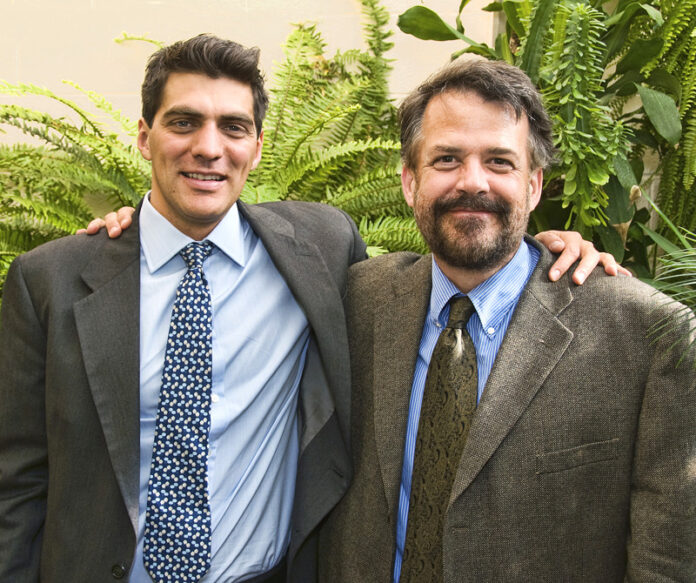
It becomes immediately apparent, even to a high school audience, that Santiago Lobeira is worth listening to because he walks the talk of sustainability; because he is making clear in Mexico that “green” is both an economic and a moral imperative; and because he has succeeded in early efforts as an eco-entrepreneur to bring both corporate and government entities to a new level of environmental responsibility. And his passion for this work is contagious.
Santiago, a lean, athletic 38-yr-old native of Mexico and graduate of Nicolas School of the Environment at Duke University, recently spent two days with students at North Cross School. He traces his path towards the masters degree at Duke—and his commitment to the environment that has come since—to a day some twenty years ago, when, as a young law student in Mexico City, he was preparing for his daily run. Warnings on the television cautioned against outdoor activities because the air was dangerously polluted. This air-quality crisis became his wake-up call–his moment of turning point. He knew then that he would be personally involved in making the changes he saw as necessary in the way we relate to the natural world that sustains us.
Five years ago, Santiago met Dr. Bruce Rinker, North Cross Science Department Chair, at a time when Rinker was in Peru as an ecologist studying forest canopy biology. The two have grown that friendship over the years, and on October 20-21, Lobeira spoke to classes at North Cross on biomimicry, on leadership and conservation, and he offered the assembly topic, “Redesigning Our Future and the Importance of Social Entrepreneurship.”
Early on, Santiago realized that change could best be affected by positive participation in the economy rather than by merely railing against corporate complicity in the problems of waste, pollution and unsustainable use of natural resources. After a number of failed attempts, beginning with a business that sold worm compost on a small scale, his persistence has yielded an encouraging early success in eco-entrepreneurship by the creation of sustenta.com in Mexico.
Using the communications power of the Internet (including a novel use of Twitter called EcoTweet), the online portal, sustenta.com, offers an increasing variety of eco-friendly products that convey a message, both in their packaging communications and by their use. A good example–and one that won points with Santiago’s audience at North Cross as upper-class students each received one–is the corn-based bio-plastic “germinakit” pen. When the ink is gone, the biodegradable pen contains arugula, dill, basil or fennel seeds with instructions on planting. Santiago’s business card has tiny arugula seeds imbedded in the paper. This is not a gimmick. Seeds offer a powerful metaphor of healthy growth and transformation.
The message is: waste is food. Everything we make and use is going somewhere, and future products can be designed with a “cradle to cradle,” regenerative, biomimetic approach, modeling human industry on nature’s ecosytems cycling of matter and energy. Corporations in Mexico are increasingly understanding that this is the smart way to operate, and it is also the right way to relate to consumers and the planet.
This new awareness makes the products of sustenta.com appealing as promotional gifts that can be branded with a corporate logo of the customer, and also carry the message of that corporation’s social and environmental responsibility. As well, each product placement brings sustenta.com towards its mission of being “the leading environmental marketing and communications company that with their products, campaigns and services and in conjunction with their clients, suppliers, allies and government, make sustainability operational.”
When asked Santiago what was the most encouraging change he’d seen in the past few years with regard to humanity’s future well-being, Santiago said it was the fact that ordinary people everywhere are now talking about the issues like climate change, energy use, food production and appropriate technology.
“And our best chance to make those necessary and urgent changes a reality,” he said, “is by educating our young people to take up the work, using the power of all forms of communication to tell the story of a new way of thinking about our relationship to the Earth and the future.”
Dr. Rinker and Mr. Lobeira will meet again in 2011, when North Cross sends students to study in Mexico and Peru. The friendship between these two educators has offered opportunities for border crossings in both directions–of human learners and teachers, and of important ideas, that, like tiny seeds, may grow to be vast forests.



Young people are our future..Their minds are fresh and not set in the ways of some older people. My family has always been ready for new ideas and thoughts…May our son and grandchilden and great grand children continue with this…God Bless America!!